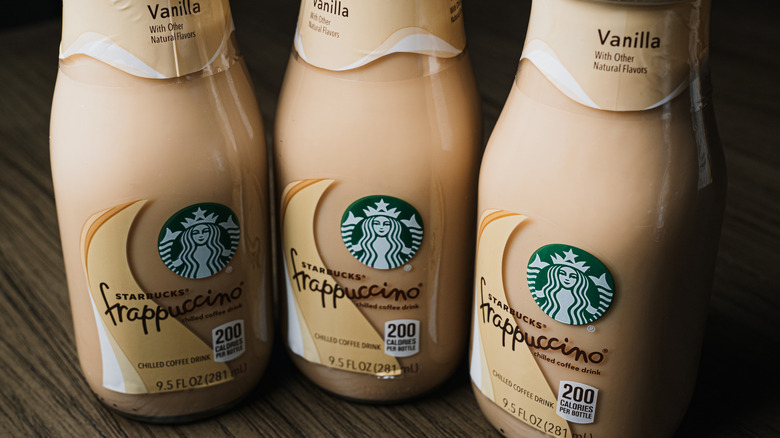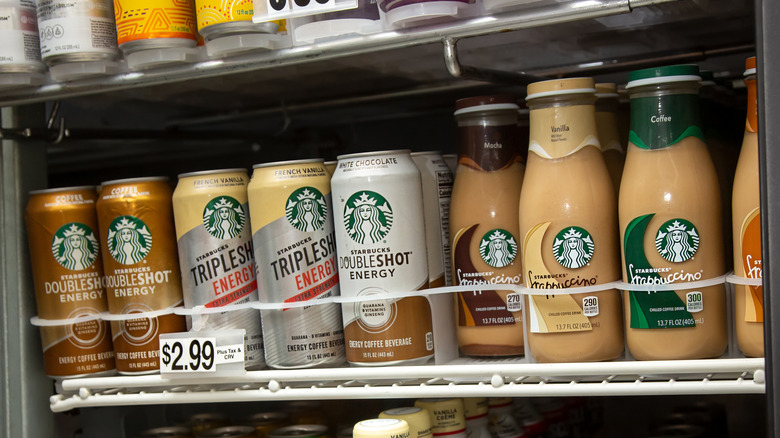Starbucks Recalled Bottled Vanilla Frappuccino Could Contain Bits Of Glass
Whether it's a daily habit or a once-a-month treat, chances are you've enjoyed a Starbucks beverage. With over 35,000 locations worldwide, Starbucks is undoubtedly one of the most sought-after coffee chains. The first location opened in Seattle in 1971 and has continuously expanded ever since, developing a loyal following of fans. The coffee company knows that ordering from the drive-thru every day can get pricey, so to help its customers curb spending, it began producing some of its more popular products for at-home enjoyment.
In addition to K-Cups and coffee packages, Starbucks sells bottled and canned versions of some of its tasty drinks in many grocery and convenience stores. Consumers can stock up on cans of Double or Tripleshot Espresso, cups of cappuccinos or macchiatos, or bottles of Frappuccinos. Though the Frappuccino is blended with ice in the cafes, the bottled versions aim to mimic the flavor in a liquid format.
Though these sweet drinks may offer a nice little energy boost, ABC News reports that there may be more than caffeine and cream in the vanilla variety. This on-the-go Frappuccino is currently being recalled for potentially containing glass.
What you need to know about the Starbucks Vanilla Frappuccino recall
Starbucks is voluntarily recalling bottles of its Vanilla Frappuccino chilled coffee drinks after discovering that the drinks may contain glass. ABC News reports that the affected products, which are distributed by PepsiCo, were found in the 13.7-ounce bottles and were sold in stores across the United States, though none were sold in Starbucks café locations. Roughly 25,200 cases, or 302,400 bottles, were distributed before the recall took effect. The bottles feature best-by dates of March 8, May 29, June 4, and June 10, 2023.
The ongoing recall was initiated on January 28. It is currently unclear how the glass wound up in the drinks, or what prompted the recall. It's also unknown if any consumers were harmed. Per the FDA recall page, this is considered a Class II recall, indicating that consumption of the affected products could cause dangerous health complications. If you have purchased the affected products, the best course of action is typically to either dispose of the product or return it to the point of purchase.

